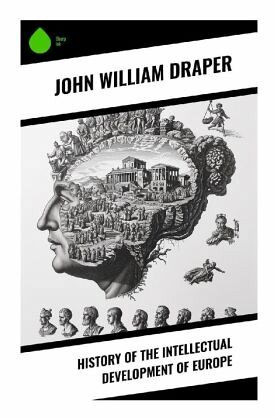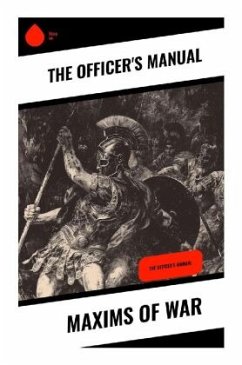
History of the Intellectual Development of Europe
Versandkostenfrei!
Versandfertig in 6-10 Tagen
21,70 €
inkl. MwSt.

PAYBACK Punkte
0 °P sammeln!
John William Draper's "History of the Intellectual Development of Europe" is a monumental work that explores the evolution of thought and culture across Europe from ancient times to the modern era. Draper employs a meticulous analytical style infused with philosophical discourse, weaving a narrative that highlights the interplay between science, religion, and philosophy. His examination of key figures such as Galileo, Newton, and Voltaire situates their contributions within broader societal shifts, emphasizing not only the intellectual achievements but also the resistant forces of dogma and tr...
John William Draper's "History of the Intellectual Development of Europe" is a monumental work that explores the evolution of thought and culture across Europe from ancient times to the modern era. Draper employs a meticulous analytical style infused with philosophical discourse, weaving a narrative that highlights the interplay between science, religion, and philosophy. His examination of key figures such as Galileo, Newton, and Voltaire situates their contributions within broader societal shifts, emphasizing not only the intellectual achievements but also the resistant forces of dogma and tradition that these thinkers confronted. As a prominent American scientist, historian, and a vocal advocate for rationalism, Draper's background in both the sciences and humanities heavily influenced his approach to historiography. His experiences during the tumultuous period of the 19th century, marked by scientific revolutions and ideological conflicts, prompted him to analyze the underlying intellectual currents that shaped European society. Draper's commitment to understanding the relationship between knowledge and social progress is palpable throughout this scholarly work. This book is highly recommended for anyone interested in the foundations of modern thought and the historical context surrounding contemporary ideas. Draper's insightful analysis not only enriches the reader's understanding of European intellectual history but also serves as a critical lens through which to contemplate the ongoing dialogue between faith and reason.












